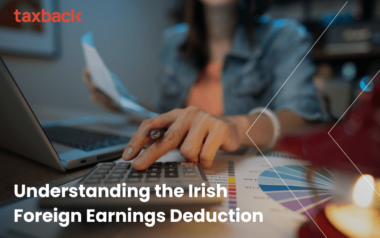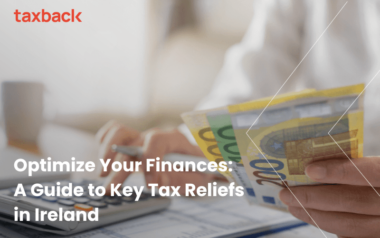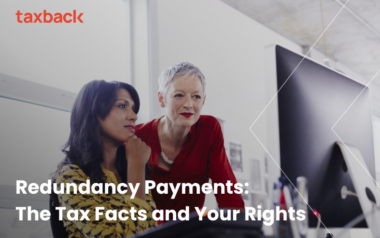Does your employer provide health and fitness facilities or a gym membership? If so, then chances are, you’re subject to pay tax on that benefit.
It seems everyone’s gone fitness mad and employers are getting in on the action but what most people don’t realise is that we are often taxed on the benefits we receive in our jobs.
In fact, benefits can end up being quite costly. If you earn more than €1,905 per year, which is highly likely, you must legally pay tax on all kinds of benefits and perks provided by your employer. This tax can be subject to a tax rate of up to 52%.
Benefits vs. benefits-in-kind
There are two categories of benefits that your employer may award you. Benefits-in-kind and standard benefits. So, what’s the difference and why does it matter?
Well, benefits include holidays, vouchers, prizes, and payment of an employee’s bills while benefits-in-kind include things like a company car, loans given at a special rate, provision of accommodation and gym memberships.
And yes, the difference is important because they are both taxed differently.
Need help filing your self-assessed tax return?
How are benefits taxed?
Taxation of benefits that are not classed as BIK are made on the literal value of the benefit. So if your employer gives you a holiday voucher worth €1,000. That €1,000 is treated as income for tax purposes and will be taxed accordingly.
How does the taxation of BIK work?
BIK stands for benefit-in-kind. It is any non-cash benefit of monetary value that an employer provides for an employee – in this case, a gym membership. This kind of benefit is sometimes known as notional pay, fringe benefits or perks.
These benefits have a monetary value which unfortunately means, that they must be treated as taxable income and are then subject to PAYE, USC and PRSI which is deducted from your pay, by your employer.
Benefits-in-kind differ from standard benefits in the sense that they have a monetary cash value but cannot be converted into cash.
What are the conditions for taxing BIK
There are of course some rules and conditions for taxing BIK…
For instance, if your total income (including benefits) is more than €1,905 per year, then you must pay tax on your benefits. Income from any previous jobs you had in that year is not counted towards the €1,905 limit. However, in the case that you worked for more than one company, under the same parent company, then your combined income from each job counts as one.
If your employer gives a benefit to your husband, wife, civil partner, family member or guest then this person must pay tax on the benefit.
If you’re a company director, you must pay tax on any BIK, regardless of your total income.
Small benefits
Your employer may give you what is known as a ‘small benefit’ tax-free. This is a once-off benefit worth no more than €500 per year – this number was €250 up until 21 October 2015. Small benefits cannot be in cash and if more than one is given to you in a year, only the first qualifies for taxation.
So say your employer pays a 6-month gym membership at €500, you won’t be taxed on that. Say they then pay for a further 3 months membership later on in the year at €300, you will be taxed on the first membership, but not the second.

Internal and external facilities
Internal
It’s important to note that if your place of work provides sports and recreational facilities that are available to all employees, this is not a benefit-in-kind.
If the facilities are only available to certain employees, it is benefit-in-kind which means that the employees who use these facilities will be charged PAYE, PRSI and USC. This kind of goes without saying but your employer can only charge you if you choose to avail of the facilities.
To calculate the tax on a benefit in this scenario, your employer will divide the cost among all employees who choose to use it. Essentially, you pay tax on the amount it’s costing your employer.
External
So your employer has decided to pay for corporate membership to external sports or recreational facilities. If you choose to avail of the offer, you will be taxed PAYE, PRSI and USC on it.
Again, to calculate the value of the benefit correctly, the cost paid by your employer will be divided equally among all employees who choose to avail of the benefit.
Up until 2004, BIK-related taxes were self-assessed but now your employer must deduct the fee automatically. If you feel that you’ve been overcharged on BIK or you’d like to apply for a tax refund, don’t hesitate to contact Taxback and we’ll answer any questions you might have we’ll provide a free no-obligation refund estimate.
If you’d like to know more about the taxation of BIK, contact us by phone, email or 24/7 Live Chat or if you feel you have overpaid tax you can apply for a tax refund with Taxback.
Last Updated on February 20, 2019







